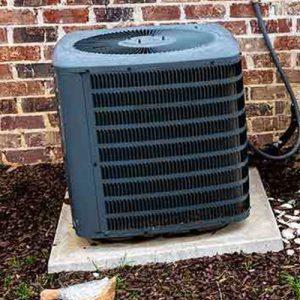 Contemporary air conditioners are designed to operate quietly. These high-efficiency units utilize two-stage variable heat compressor technology and sound reduction measures to keep noise levels under 55 decibels. If you own such a unit, you likely seldom consider its noise levels. That is until the unit begins to sound louder than usual. If this starts occurring, chances are that you will notice and might wonder if something is going wrong with your unit.
Contemporary air conditioners are designed to operate quietly. These high-efficiency units utilize two-stage variable heat compressor technology and sound reduction measures to keep noise levels under 55 decibels. If you own such a unit, you likely seldom consider its noise levels. That is until the unit begins to sound louder than usual. If this starts occurring, chances are that you will notice and might wonder if something is going wrong with your unit.
If you begin hearing odd, uncharacteristic noises from a normally quiet unit, it’s best not to ignore them. The problem could be something that a very basic tune-up can address, or it might require major repairs. Sometimes, the cost of the repairs could exceed that of replacing the unit altogether. In either case, ignoring unusual noises is unlikely to produce anything positive for your air conditioner. The longer you let the loud noises continue without addressing them, the higher your risk of costly repairs becomes. To that end, it’s best to address these AC issues without wasting time.
There could be several reasons why your air conditioner is loud inside. Here are some common factors that may contribute to a noisy air conditioner:
- Age and wear: Over time, air conditioners can develop worn-out components, such as fan blades or bearings, that can create noise when they operate. If your air conditioner is old or hasn’t been properly maintained, it may be louder than a newer unit.
- Improper installation: If your air conditioner was not installed correctly, it may produce more noise than it should. Issues such as loose parts, improper placement of the unit, or loose ductwork can contribute to increased noise levels.
- Inadequate insulation: Poor insulation or insufficient soundproofing in the walls, ceilings, or floors can allow noise from the outdoor unit or the air ducts to penetrate into the living space, making the air conditioner sound louder.
- Dirty or clogged components: Dust, debris, or dirt accumulation on the fan blades, air filters, or condenser coils can cause the air conditioner to work harder, resulting in increased noise levels. Regular cleaning and maintenance can help prevent this issue.
- Mechanical problems: Certain mechanical issues within the air conditioner, such as a malfunctioning compressor or a faulty motor, can cause excessive noise. These issues may require professional repair or replacement.
- Ductwork issues: If there are loose or damaged ducts, air may leak out, causing a whistling or hissing sound. Additionally, undersized or improperly designed ductwork can create turbulent airflow, resulting in increased noise levels.
You don’t always need to worry about calling a professional for AC unit repairs. When there’s a new noise that you’re not accustomed to hearing, you should investigate the unit yourself as many problems have DIY solutions. Often, the solution is quite simple. Various debris, including tree branches, twigs, leaves, and seed pods, are well known to clog up air conditioning coils, resulting in buzzing or pulsing sounds.
In most cases, you can remove the top of your air conditioning unit with just a screwdriver and closely inspect the fans. Loose parts, especially when in motion, are usually easy to spot. You can also change the filter on your unit, as well as clean an outdoor unit of all the natural debris on it with a spray from a hose.
